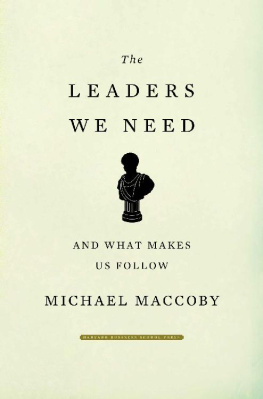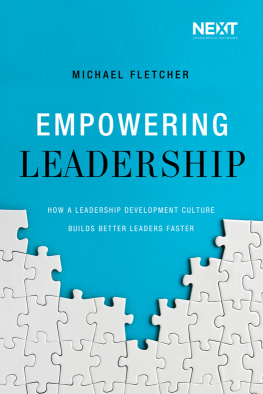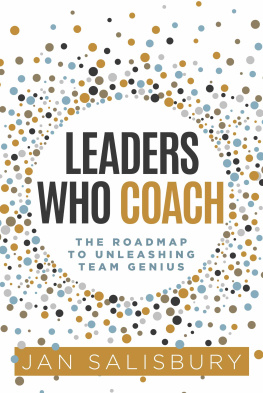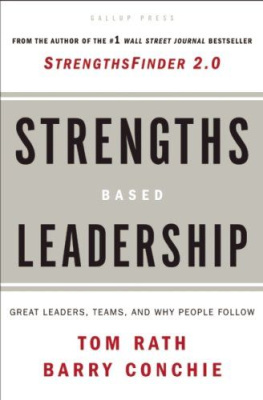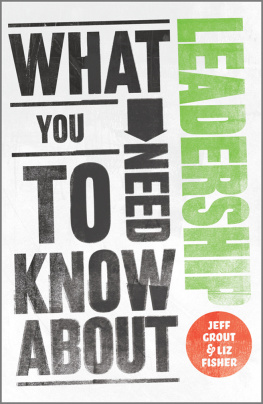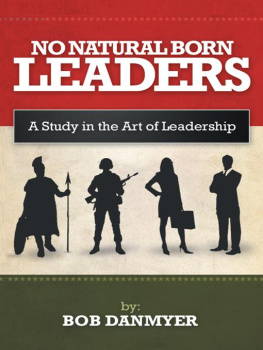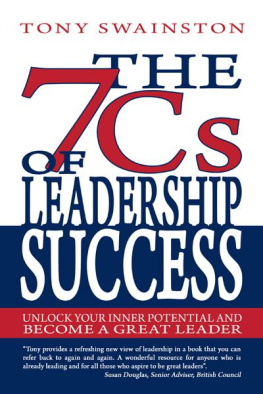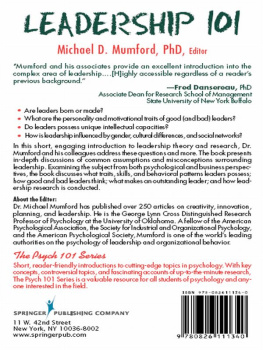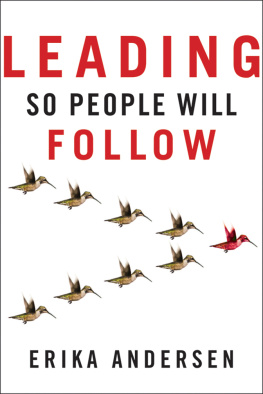No part of this publication may be reproduced, stored in or introduced into a retrieval system, or transmitted, in any form, or by any means (electronic, mechanical, photocopying, recording, or otherwise), without the prior permission of the publisher. Requests for permission should be directed to permissions@hbsp.harvard.edu, or mailed to Permissions, Harvard Business School Publishing, 60 Harvard Way, Boston, Massachusetts 02163.
The leaders we need : and what makes us follow / Michael Maccoby.
p. cm.
1. Leadership. 2. LeadershipPsychological aspects. 3. Context effects (Psychology) 4. Transference (Psychology) I. Title.
The paper used in this publication meets the requirements of the American National Standard for Permanence of Paper for Publications and Documents in Libraries and Archives Z39.48-1992.
The book is dedicated to those leaders who are making this world a better place.
Acknowledgments
THIS BOOK GREW out of two articles, written for different readers. One, Toward a Science of Social Character, was written for psychoanalysts and psychotherapists, to help them understand the changes they are facing in the personality and problems of their patients. I first tested out the theory of a shift from the bureaucratic to the interactive social character in meetings of the Academy of Psychoanalysis and the International Forum of Psychoanalysis. Mauricio Cortina, a psychiatrist, made valuable contributions to my thinking, especially how changes in psychotherapy were matching the change in social character.
Later, I introduced this theory of a changing social character in a research seminar on collaborative organizations led by Charles Heckscher, a sociologist who has been extremely helpful with his encouragement and criticism of a draft of this book. I benefited greatly from the interaction with members of the seminar, whose research enriched my understanding of the changes taking place in the knowledge workplace: Paul S. Adler, Lynda M. Applegate, Mark Bonchek, Nathaniel Foote, Jay R. Galbraith, Robert Howard, John Paul MacDuffie, Saul A. Rubinstein, Charles F. Sabel, and Barry Wellman. Their research and earlier versions of some of the material Ive developed in this book were published in The Firm as Collaborative Community , edited by Heckscher and Adler.
The second article, Why People Follow the Leader: The Power of Transference, published in the Harvard Business Review, was written for business leaders to help them understand how to deal with changes in the motivation of their followers. That article describes how the shift in social character requires a revision of Freuds theory of transferencethe projection on to others of unconscious emotional attitudes shaped by infantile and childhood relationships. My editor, Diane Coutu, encouraged me to write the article, and as always, she was a brilliant and demanding guide and partner.
Jeff Kehoe, a senior editor at the Harvard Business School Press, read the article and suggested I expand it into a book on leaders and followers. Over a period of two and a half years, Jeff helped me first to craft a book proposal and then became an indispensable critic and speaking partner as I wrote the book. He has been the kind of editor writers wish for but seldom find, someone who understands and appreciates what the writer is trying to say and challenges him to stretch himself.
Others have also been helpful. Mike Wolff, editor of Research Technology Management , edited and published articles I wrote for The Human Side, which tested out some of the ideas Ive used in this book. Paul Griner read and corrected the descriptions of healthcare organizations in chapter 7. Phillip Cleary, Mike Feinberg, Rick Frechette, Reinhart Koehler, Dave Levin, Ed McElroy, Laura Rico, Susan Schaeffler, Henry Simmons, and Gary Smuts all responded generously to my questions about their lives and work.
The Harvard Business School Press sent a draft of the book to five anonymous reviewers who wrote useful criticism and gave their approval for publication. I thank them for the care they took, and I believe their suggestions improved the book.
I am also grateful to Bob McLean, an inspirational bridge-builder who has led the Washington Metropolitan Dialogue, a group of business, religious, government, and educational leaders supporting each other to improve relations in the city. Bob has been an enthusiastic supporter of my studies of leadership.
I appreciate the time, thought, and useful criticism contributed by Nora Maccoby, Max Maccoby, Erik Berglof, and Richard Margolies.
Thanks to my assistant, Maria Stroffolino, who prepared the many drafts of this manuscript, and to Monica Jainschigg, my careful and exacting copy editor.
Most of all, I am grateful to Sandylee Maccoby, who has been a very helpful critic and loving companion. She brightens every day were together, and Im fortunate to be married to her.
Michael Maccoby
Washington, D.C.
April 2007
PREFACE
Whos a Leader?
THE NEED FOR LEADERS is urgentto mobilize human intelligence and energy to grapple with historic threats such as global warming and weapons of mass destruction, and also to respond to vast opportunities to improve life on this planet. Only effective political leadership can show the way to achieve health care for all Americans, to gain energy independence through alternative nonpolluting technologies, or to fix public education so that it prepares children of every background for a demanding global economy. Only a persuasive national leader can gain support at home and abroad for policies that protect our society from its enemies. Only exceptional business and organizational leaders can provide employment and produce the goods and services essential for a strong economy. Yet despite the thousands of books and articles on the subject, we havent improved on classic writings about leadership. To start with, even the best recent writers on leadership stumble over the definition of a leader, and a good definition is the beginning of understanding the kinds of leaders we need and how theyll gain followers in the context of our time.

